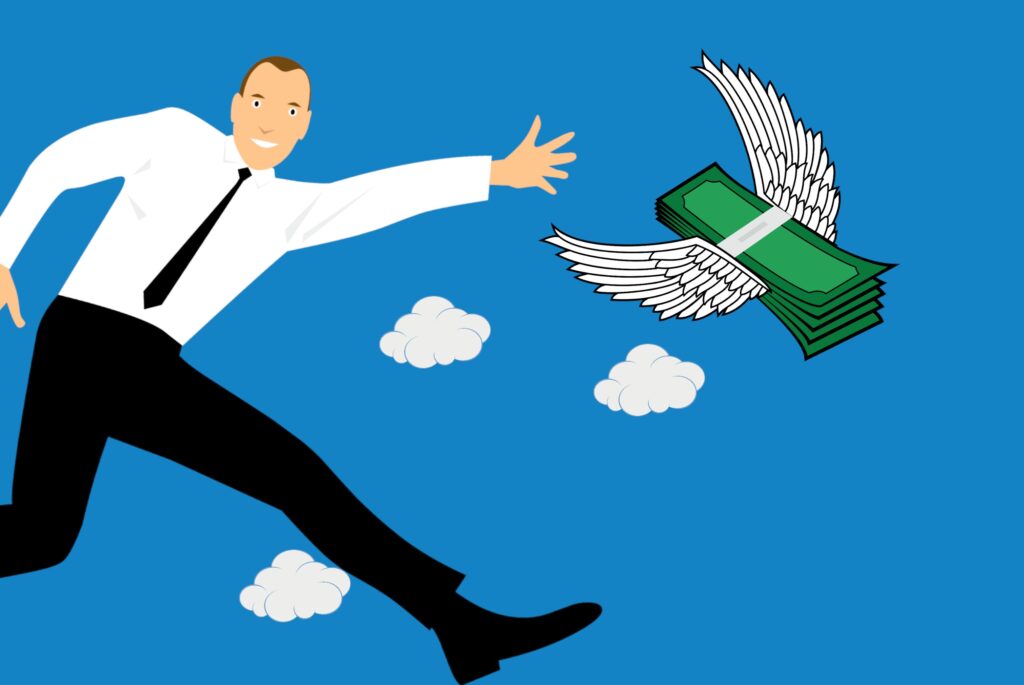Inflation is a term that frequently makes headlines, especially when the cost of living rises and impacts household budgets. But what exactly is inflation, and how does it affect your financial health? In this beginner’s guide, we’ll break down the basics of inflation, its causes, and actionable strategies to protect your money from its effects.

What is Inflation?
Inflation is the rate at which the general level of prices for goods and services rises over time, leading to a decrease in the purchasing power of money. In simpler terms, inflation means that your dollar buys less today than it did yesterday.
For example, if the inflation rate is 3%, an item that costs $100 today will cost $103 a year from now, assuming everything else remains constant.
Types of Inflation
Understanding the types of inflation can help you recognize its impact on different aspects of the economy. Here are the three primary types:
- Demand-Pull Inflation: This occurs when the demand for goods and services outpaces supply. For instance, during economic booms, consumers and businesses spend more, driving prices higher.
- Cost-Push Inflation: This happens when production costs rise, leading companies to increase prices to maintain profit margins. Higher costs for raw materials or labor often drive this type of inflation.
- Built-In Inflation: Also known as wage-price inflation, this is a cycle where rising wages lead to higher costs for goods and services, which then prompts demands for further wage increases.
How is Inflation Measured?
Economists measure inflation using two main indicators:
- Consumer Price Index (CPI): The CPI tracks the changes in prices of a basket of goods and services commonly purchased by households, such as food, housing, and transportation.
- Producer Price Index (PPI): The PPI measures the average change in selling prices received by domestic producers for their output. It provides insight into inflation at earlier stages of production.
Causes of Inflation
Several factors contribute to inflation, including:
- Monetary Policies: When central banks, like the Federal Reserve, increase the money supply, it can lead to higher demand and rising prices.
- Supply Chain Disruptions: Events like natural disasters or geopolitical tensions can limit the supply of essential goods, driving up prices.
- Economic Growth: A growing economy often sees increased demand for goods and services, which can push prices higher.
- Government Policies: Fiscal policies, such as stimulus packages or tax changes, can influence spending and inflation levels.
The Effects of Inflation on Your Money
Inflation has both direct and indirect impacts on your financial health:
- Reduced Purchasing Power: Over time, inflation erodes the value of money, making everyday items more expensive.
- Impact on Savings: If your savings aren’t growing at a rate higher than inflation, you’re effectively losing money.
- Borrowing Costs: Inflation can influence interest rates. While higher inflation may lead to higher borrowing costs, it can also reduce the real value of debt.
- Investment Returns: Inflation can affect the performance of stocks, bonds, and other investments, with some assets faring better than others in inflationary periods.
How to Protect Your Money from Inflation
While inflation is a natural part of economic cycles, there are strategies to minimize its impact on your finances:
1. Invest Wisely
Certain investments perform well during inflationary periods. Consider:
- Stocks: Companies with pricing power can pass higher costs to consumers.
- Real Estate: Property values and rents often rise with inflation.
- Commodities: Assets like gold and oil tend to retain value when inflation rises.
- Treasury Inflation-Protected Securities (TIPS): These government bonds are designed to keep pace with inflation.
2. Open a High-Yield Savings Account
To combat the erosion of your savings’ value, choose a high-yield savings account that offers interest rates closer to or above the inflation rate.
3. Budget for Rising Costs
Regularly review and adjust your budget to account for price increases. Focus on essentials and cut back on discretionary spending if necessary.
4. Pay Off High-Interest Debt
Inflation can increase interest rates, making it more expensive to carry debt. Prioritize paying off high-interest loans and credit card balances.
5. Diversify Your Portfolio
A well-diversified investment portfolio can help you hedge against inflation. Spread your investments across different asset classes, sectors, and geographies.
The Federal Reserve’s Role in Managing Inflation
The Federal Reserve, the U.S. central bank, plays a critical role in controlling inflation through monetary policy. It uses tools like:
- Adjusting Interest Rates: Raising rates can slow borrowing and spending, reducing demand-driven inflation.
- Open Market Operations: Buying or selling government securities to influence the money supply.
- Quantitative Tightening: Reducing the Fed’s balance sheet to decrease money circulation.
By carefully monitoring and managing inflation, the Federal Reserve aims to maintain economic stability.
Conclusion
Inflation is an unavoidable economic phenomenon, but understanding its causes and effects can empower you to make smarter financial decisions. By investing wisely, managing your budget, and staying informed, you can protect your wealth and even capitalize on inflationary trends.
Stay proactive and take steps today to safeguard your financial future from the challenges posed by inflation.
